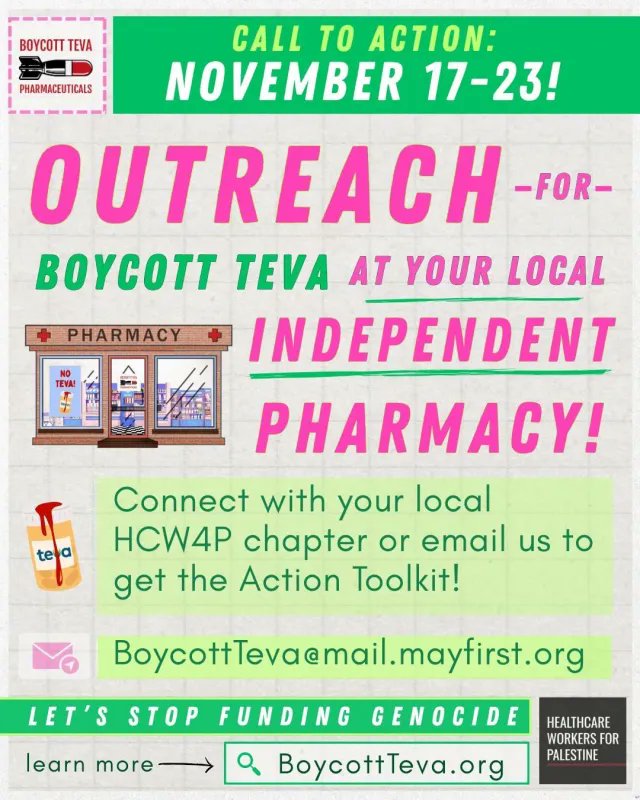USA. Teva boycott. Italy, Teva boycott. EEUU boicot a Teva. Italia boicot a Teva. ENG ESP
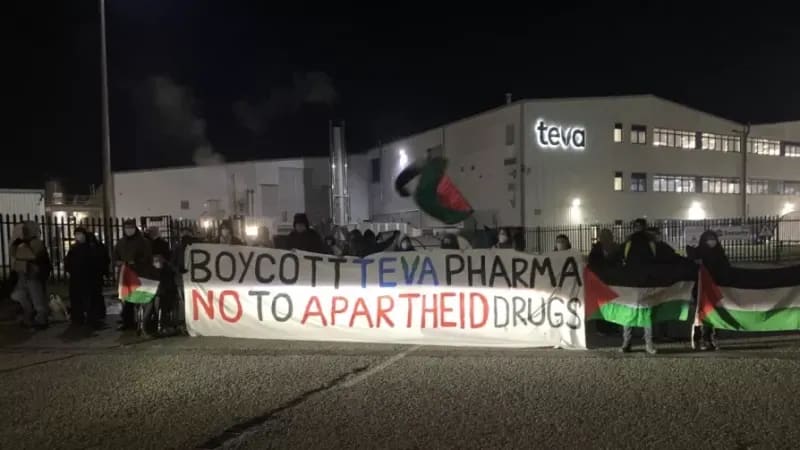
Flyers. Pharmacies. General practitioners. Municipal goverments. Panfletos. Farmacias. Médicos de cabecera. Gobiernos municipales.
ENGLISH
USA. Boycott Teva campaign
By Marie Kelly
November 14, 2025 Philadelphia
Earlier this year, Health Care Workers for Palestine (HCW4P) launched a worldwide campaign to boycott the Israel-based Teva Pharmaceuticals, a major distributor of generic medications here in the U.S. and throughout the Western hemisphere. The campaign in the U.S. was adopted by local chapters of HCW4P in major areas, including the San Francisco Bay Area, New York and Philadelphia.
Since the campaign launch, the “No Teva” boycott has been endorsed by and included in the targets of the Boycott, Divestment and Sanctions Movement.
The initial thrust of the campaign centered on getting individuals to speak to their pharmacist about the boycott. HCW4P members held actions outside pharmacies, approaching individuals and engaging in conversation while handing out flyers.
The 3-fold pamphlet was designed by HCW4P members of the “No Teva” boycott campaign. In bold graphics, it lists examples of how Teva Pharmaceuticals was complicit in genocide through their support and funding of the Israel Occupation Forces.
The pamphlet also bullet-points other shady dealings by Teva, including their role in the opioid epidemic. The company has had to shell out millions of dollars to compensate victims of Teva Pharmaceuticals profit-driven marketing of highly addictive medications to individuals suffering from painful injuries and diseases.
Recently, some Teva medications have been recalled due to contamination with carcinogens. Included in the pamphlet is an easy to follow script that individuals can use when talking to their pharmacists. The suggested “ask” is to switch any prescribed medications to a non-Teva supplier, if available and not cost prohibitive.
Second, ask the pharmacist to note on the individual’s account that non-Teva drugs are preferred. HCW4P emphasizes that no one should discontinue any medication if Teva is the only option.
This author’s experience is worth mentioning, because of how easy it was. At the local CVS, her pharmacist looked up each of her medication’s suppliers and was able to recommend a suitable substitute for one of them. It was altogether a positive experience, including that her pharmacist understood that she was boycotting Teva because of their role in the Gaza genocide.
Distributing flyers by the Philadelphia chapter of HCW4P continues several times each month at local pharmacies. The response from the public has been enthusiastic. People were unfamiliar with Teva Pharmaceuticals and their connection to the IOF. After some conversation, people welcome the ability to do something constructive to cut a source of funding to the Zionist regime.
Next steps for the boycott are to broaden the scope. The campaign will target independent pharmacies next. HCW4P will visit independent pharmacies to educate them about the boycott and encourage them to seek out non-Teva suppliers. The logic is that the independent pharmacist has more control over suppliers than pharmacists working at some of the major pharmacy chains like CVS and Walgreen’s.
As momentum for the boycott grows, the push will be for prescribing doctors and nurses to ask for non-Teva alternative medications for their patients.
The HCW4P has called for days of an outreach campaign to pharmacies from Nov. 17 to Nov. 23. For more information on the HCW4P and the “Boycott Teva” campaign: Health Workers 4 Palestine and BoycottTeva.org.
Italy.
Europe’s Palestine solidarity movement strengthens call to boycott Israeli pharmaceutical company Teva
Original article by Ana Vračar
Pressure is mounting on local governments and public pharmacies to replace Teva products with alternatives not complicit in Israel’s occupation and genocide.
Israeli pharmaceutical giant Teva is facing mounting pressure from Palestine solidarity groups across Europe. One of Israel’s largest drugs manufacturers and a major global producer of generic medicines, Teva has actively supported the genocide in the Gaza Strip since October 2023 and contributed to the erosion of Palestinian healthcare long before that, Giorgia Gusciglio, Europe Coordinator for Boycott, Divestment and Sanctions (BDS) Campaigns at the Palestinian BDS National Committee.
Last year, as Gaza’s health services and workers faced near-total annihilation from Israeli attacks, Teva reported over USD 16.5 billion in revenue. Part of that revenue comes from the Palestinian market, where the company profits from the double standards imposed by the apartheid regime.
In contrast to Palestinian pharmaceutical producers, who face severe restrictions, prolonged import procedures, and arbitrary “dual-use” designations for essential components, Teva is free to market its products in the occupied territories, many times without adapting packaging or documentation. According to sources collected by BDS Italy, the company even sells medicines in boxes and with instruction leaflets not translated into Arabic.
The exploitation of pharmaceutical needs in occupied territories is not unique to Teva or the time since 2023. The 2012 report “Captive economy: The pharmaceutical industry and the Israeli occupation” concluded that “all Israeli pharmaceutical companies sell their products on the Palestinian market and profit from it, without paying any price for the occupation and its damage.”
A matter of Palestine solidarity and access to medicines
Beyond usurping the Palestinian market, Teva also holds an important share of Europe’s pharmaceutical landscape: not only through its large generics portfolio, but also through proprietary products for multiple sclerosis and cancer. The contradiction between Teva’s stated “commitment toward better health” and its well-documented complicity in war crimes has driven the growth of groups mobilizing to boycott and expose the company. As Gusciglio explains, these initiatives vary by country: in Ireland they have a strong trade union dimension, while in Belgium and Italy, they are primarily led by BDS chapters and activist networks. But the local campaigns still share the same goal – securing justice for Palestine.
A key moment in achieving that goal is reaching out to patients and medics. Throughout the genocide, BDS Italy has been working closely with the local collective Health Workers for Gaza (Sanitari per Gaza), achieving major milestones.
According to activists, one of their first actions under the Teva boycott campaign was to distribute leaflets in front of pharmacies to raise awareness among patients and pharmacists about the company’s role in the genocide.
“All activists took responsibility for visiting a pharmacy, arranging meetings with the chemist, and trying to raise awareness about boycotting Teva products,” the activists explained. The same approach was extended to general practitioners and, by now, the understanding of Teva’s complicity has grown significantly among health professionals and patients alike, BDS Italy members said.
The campaign then moved to engage professional associations and pressure local governments to suspend purchases of Teva products in public pharmacies.
Over recent months, several municipalities have responded, issuing guidance for pharmacies under their jurisdiction to seek alternatives. “Teva sells mostly generics, but there are also some drugs that it developed itself and are therefore not replaceable,” BDS Italy activists note. “It’s important to emphasize that we call for suspending purchases except in the case of medicines that are essential or cannot be substituted.”
The fact that some Teva products are not replaceable is often used as a misleading argument against the boycott. In reality, it points to systemic problems in the global pharmaceutical and patent system more than it identifies a concrete issue within the BDS call. One example of this is Copaxone, Teva’s multiple sclerosis treatment.
Even Israel’s trusted ally, the European Union, called out the company’s attempts to shield itself from competition by artificially extending the drug’s patent protection. Through such actions, BDS Italy pointed out, Teva has likely inflated public health expenditures for multiple sclerosis drugs, with Copaxone alone costing about €500 million a year in 2022. Efforts to mobilize for alternatives to Teva’s products therefore represent a possible meeting point between Palestine solidarity and public pharma initiatives, opening the door to more just and accessible health systems.
Italian municipalities adopt guidance to replace Teva
“The first local administration to issue a recommendation to move away from Teva products was Sesto Fiorentino, near Florence,” BDS Italy activists noted. “They were soon attacked by the media, accused of antisemitism and mismanaging public funds. Some claimed that Teva drugs are cheaper, and that discouraging their purchase would raise costs for patients and the health system.”
Despite such attacks, an increasing number of municipalities have since joined the boycott call, including in Emilia-Romagna, Tuscany, Marche, and Trentino-Alto Adige. While many have urged public pharmacies to look for substitutes for Teva products, others have opted for different approaches.
In Rovereto, after a successful grassroots campaign, the local government asked pharmacies to display infographics informing customers that they have the right to choose safe, effective alternatives to Teva products.
While more municipalities in Italy are discussing similar moves, the global BDS campaign and the European Legal Support Center (ELSC) are considering support for municipalities wishing to introduce ethical public procurement in line with EU legislation as well as human rights standards. Meanwhile, campaigners in Europe are keeping up the pressure, turning to, among other things, Teva’s presence in hospital pharmacies and its attempts to whitewash its image through initiatives like the Humanizing Health Awards. Activists are also continuing their partnerships with health workers’ collectives, such as the Health Workers for Gaza fasting action held in Italy earlier this year, while expanding international networks.
Their campaigns might already be showing signs of success. While the company proudly reported its 2024 revenue, it was more restrained about the fact that it had also recorded net losses amounting to 1.4 billion dollars in the first nine months of the year alone. As BDS Italy noted, “Israel’s genocidal assault since October 2023 and its various consequences could be considered potential factors influencing these results.”
ESPAÑOL

Israeli rape culture. Cultura israelí de la violación sexual. ENG ESP
Zionism is inherently imbued with rape culture. El sionismo como cultura de la violación
Publicado ayer.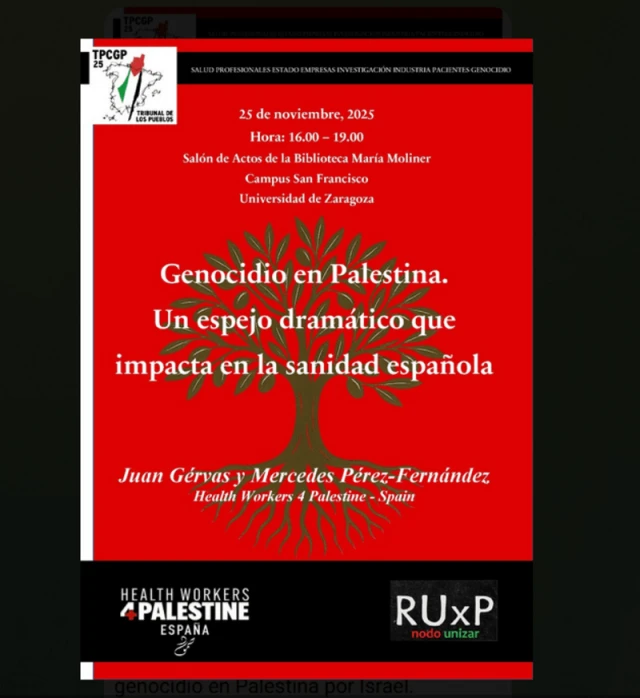
Vídeo. "Genocidio en Palestina. Un espejo dramático que impacta en la sanidad española" Vídeo 90 min
Encuentro en Zaragoza, preparación para el Tribunal de los Pueblos sobre la Complicidad con el Genocidio palestino en el Estado español TPCGP-25.
Publicado hace 3 días.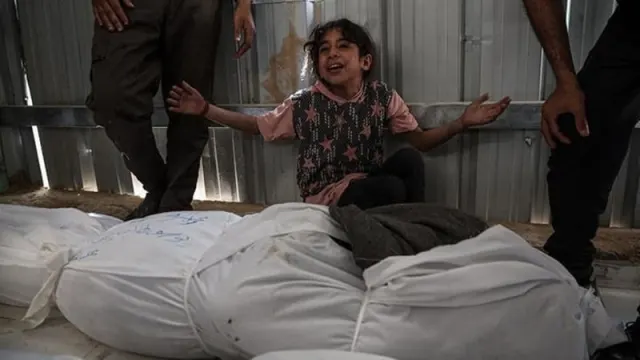
Gaza’s Orphan Crisis: 40,000. En Gaza, 40.000 huérfanos ENG ESP
40,000 children after losing one or both parents. 40.000 niños en Gaza sin uno o dos padres
Publicado hace 8 días.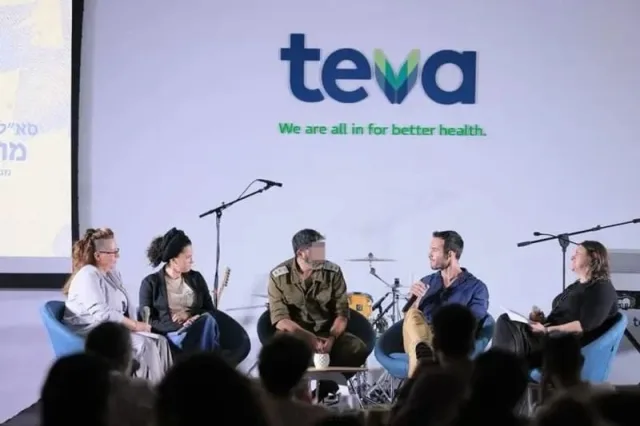
Teva y el ejército de Israel (IDF). Teva and the Israel Defense Forces (IDF). ESP ENG
Teva apoya directamente el genocidio palestino. Teva directly supports the genocide against Palestinians.
Publicado hace 14 días.
ICE operations (USA) versus Israel occupation of Gaza. EEUU, policía de inmigración versus Israel ocupación de Gaza. ENG ESP
“Imperial-colonial boomerang” in action. El «bumerán imperial-colonial» en acción
Publicado el 13 de febrero.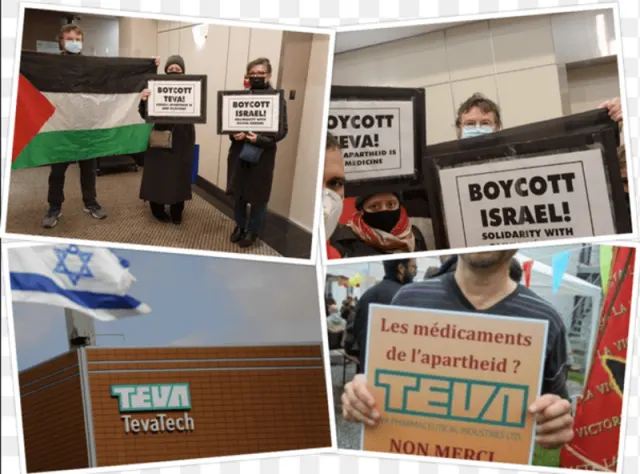
Teva, growing global backlash. Teva, boicot creciente ENG ESP
Teva: politics and business over compassion and ethics. Teva: política y negocio sobre compasión y ética
Publicado el 10 de febrero.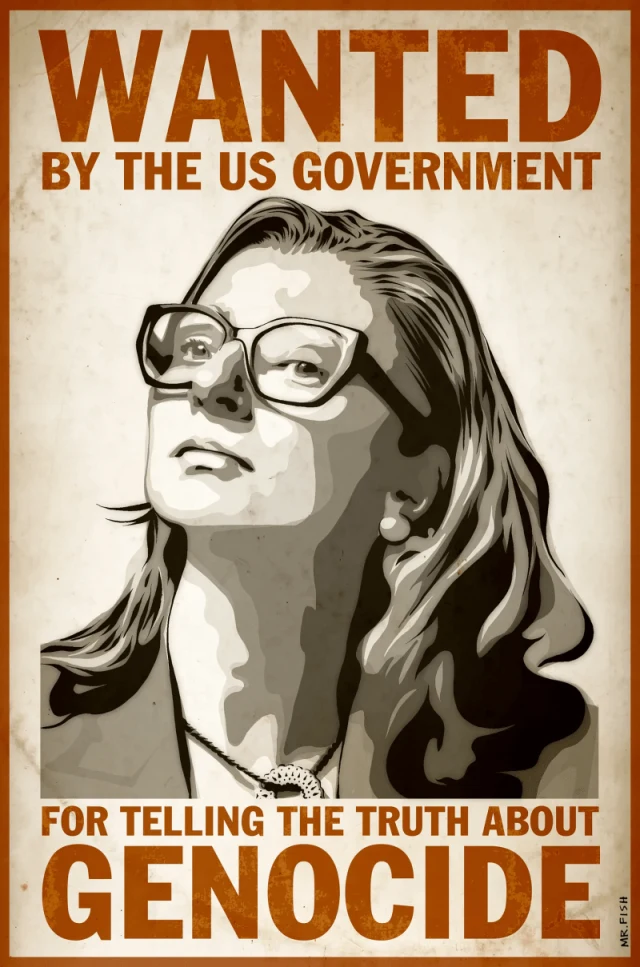
"Si Francesca Albanese es terrorista, yo también". "If Francesca Albanese is a terrorist, then so am I" ESP ENG
"Una relatora de derechos humanos de la ONU, tratadа como terrorista por documentar el genocidio en Gaza". "A UN human rights rapporteur, treated as a terrorist for documenting the genocide in Gaza"
Publicado el 9 de febrero.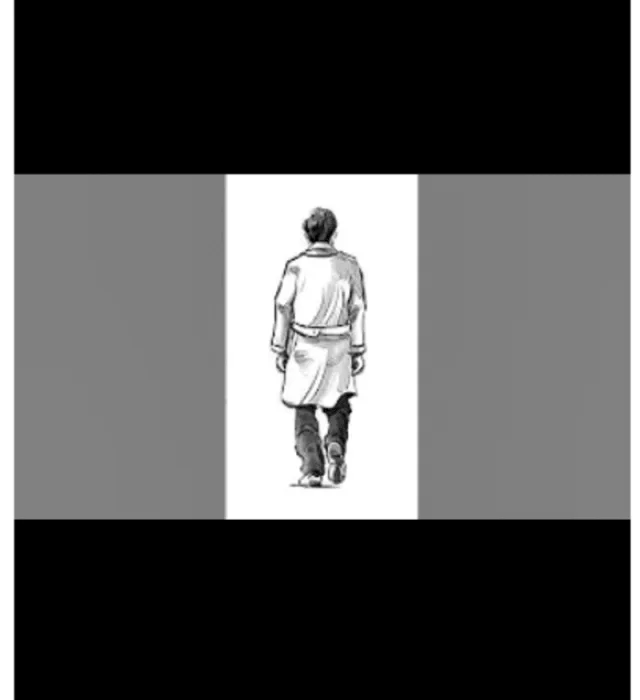
Vídeo, 60 sg. Dr. Hussam Abu Safiya. Lazos Rojos por la liberación de rehenes palestinos.
Campaña por la liberación de rehenes palestinos
Publicado el 7 de febrero.Ver más / See more


